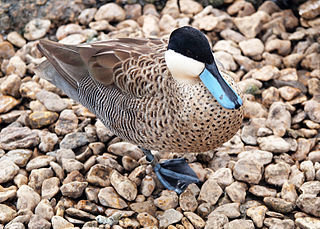Is-A Duck
3 Ways to Reuse Code
Has-A Duck
Calls-A Duck
Janet Riley @janet_riley_net
Online Intro
These slides are from a lightning talk I gave to Boston PyLadies. The examples are geared to Python, but the content applies to languages that have classes and modules.
Press the space bar to advance sequentially.
Use the blue arrows in the corner to dive into a section or skip around.
Speaker notes are overlaid in grey.
3 Common Approaches
- inheritance
- composition
- modules and libraries
Code
Reuse

the eternal
dream
Is-A Duck
Inheritance
Classes
class Duck:
def looks_like(self):
print("You see here a duck.")
def swim(self):
print("Paddle, paddle, paddle")
def quack(self):
print("Quack!")

Subclasses
Just like the parent class, except a little different




Reason #1:
specialization
add * extend * override


>>> plain_dict = dict()
>>> print( plain_dict['no_such_key']
Traceback (most recent call last):
File "<stdin>", line 1, in <module>
KeyError: 'no_such_key'
KeyError: 'no_such_key'
Example
defaultdict inherits from dict.
It's just like its parent, with one difference:
>>> import collections
>>> my_default_dict = collections.defaultdict(int)
>>> print( my_default_dict['no_such_key'])
0Python dict() is a key-value map.
It raises an error if we access a key that doesn't exist.
Reason #2:
Substitution
Dr. Liskov
look like a duck
swim like a duck
quack like a duck
✓
A substitute duck must:
✓
✓
The 'L' in the SOLID principle

have duck DNA
✓
And in some languages,
Has-A Duck
Composition
import RubberDucky
class Ernie:
def __init__(self):
self.ducky = RubberDucky()
def sing(self):
print("Rubber ducky, you're the one")
print( self.ducky.quack())
print( self.ducky.quack())
print("You make bath time lots of fun")
Ernie has a duck.
Ernie is not a duck.
Why?
- weaker relationship between elements
- more configurable
- less baggage
- my implementation is nobody else's business
Calls-A Duck
good old modules
group related code into namespaces
which keeps them tidy
Modules

often without classes
import json
duck = json.loads('{"name":"Daffy Duck", \
"species":"Loony Tune"}')
How to Choose
when to ask questions

Composition
- when possible
- when nothing calls the object from the outside
- when configurability is a plus
Inheritance
- when necessary
- when it's just like the parent with a small difference
Modules
- all static methods or constants
- no instance data
- useful across many kinds of things
- "when your class has 2 methods, one of which is __init__"
Classes
- there are distinct instances with data
- inheritance is required
No Trogdors!
class Trogdor(Dragon, Man):
def burninate(self):
pass
def shake_hands(self):
pass"Trogdor was a Man!
He was a Dragon Man!
Maybe he was just a dragon..."
Too Many Ancestors
Platypus
inherits bill, eggs from Duck
inherits fur, tail from Beaver
inherits poison spurs from Ninja
Lots of Imports

Learn More
The Art of Subclassing - Raymond Hettinger
Stop Writing Classes - Jack Diederich
Practical Object-Oriented Design in Ruby - Sandi Metz
An articulate and approachable guide to object design. If you know Python, you'll understand the Ruby well enough.
Trogdor the Burninator - HomeStarRunner.com
See the social and domain forces that lead to strange inheritance trees.
Image Credits








